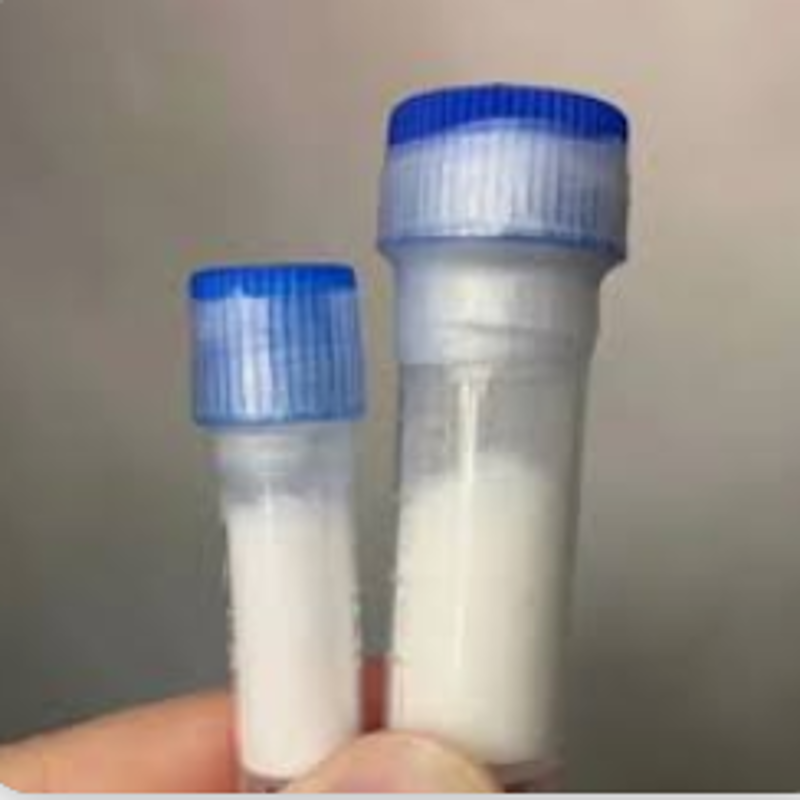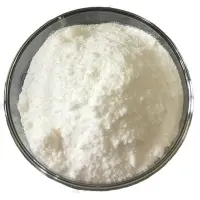-
Categories
-
Pharmaceutical Intermediates
-
Active Pharmaceutical Ingredients
-
Food Additives
- Industrial Coatings
- Agrochemicals
- Dyes and Pigments
- Surfactant
- Flavors and Fragrances
- Chemical Reagents
- Catalyst and Auxiliary
- Natural Products
- Inorganic Chemistry
-
Organic Chemistry
-
Biochemical Engineering
- Analytical Chemistry
-
Cosmetic Ingredient
- Water Treatment Chemical
-
Pharmaceutical Intermediates
Promotion
ECHEMI Mall
Wholesale
Weekly Price
Exhibition
News
-
Trade Service
▎WuXi AppTec content team editor Immunic, a biopharmaceutical company focused on developing immunotherapies for the treatment of chronic inflammatory and autoimmune diseases, has announced data from a Phase 2 clinical trial of its primary drug candidate, vidofludimus calcium (IMU-838), for the treatment of relapsing-remitting multiple sclerosis (RRMS
).
The results showed that pharmacotherapy was associated with a lower rate of confirmed disability exacerbation (CDW) over time and had an advantage
over historical trial data for currently available multiple sclerosis (MS) drugs.
MS is a chronic autoimmune disease
that occurs when the immune system attacks the myelin sheath that protects nerves.
The progression of MS leads to a decline
in physical function (e.
g.
, walking) and cognitive function (e.
g.
, memory).
RRMS is characterized by a well-defined course of relapse and remission, i.
e.
, relapse, onset or exacerbation, followed by a period of partial or complete recovery, during which symptoms partially or completely improve without significant exacerbation
of the disease.
However, as the number of relapses increases, most patients gradually
worsen.
With more than 2.
8 million MS patients worldwide, it is one of the leading causes of non-traumatic disability in young people, with most patients having their first onset
of symptoms between the ages of 20 and 40.
Vidofludimus calcium is an orally administered next-generation selective immunomodulator designed to inhibit intracellular metabolism
of activated immune cells by blocking dihydroorotic acid dehydrogenase (DHODH).
In preclinical studies, vidofludimus calcium was able to act on activated T and B cells without affecting other immune cells and allowing the immune system to maintain functions, such as anti-infection function
.
In previous trials, vidofludimus calcium did not increase infection rates
compared to placebo.
To date, the drug candidate has been tested in more than 1,100 subjects and has shown attractive pharmacokinetics, safety, and tolerability
.
The Phase 2 clinical trial in which results are announced is an international, multicenter, double-blind, placebo-controlled, randomized, parallel-cohort trial designed to evaluate the efficacy and safety
of vidofludimus calcium in patients with RRMS.
In 2020, Immunic reported that the trial met the primary and critical secondary endpoints that were statistically significant, with safety and tolerability similar
to placebo.
The trial also includes an optional long-term open label extension (OLE) phase
of up to 9.
5 years.
At the time of the interim analysis in October 2022, 209 patients were still receiving treatment for the OLE phase, some of whom had been receiving active treatment with vidofludimus calcium for more than 180 weeks (approximately four years)
continuously.
During the 24-week double-blind primary treatment period, 1.
6% of participants in the combined vidofludimus calcium treatment group experienced 12- and 24-week confirmed worsening of disability (12w/24 wCDW) events, compared with 3.
7%
in the placebo group.
In the OLE phase, the proportion of patients without 12 wCDW after 48 weeks of treatment with vidofludimus calcium compared to the beginning was 97.
6% and 94.
5%
after 96 weeks.
Similar results were observed
in 24 wCDW and sustained CDW.
That said, patients treated with vidofludimus calcium also showed low recurrence during the OLE phase
.
"Our newly obtained data from this Phase 2 trial indicate encouraging signs
of vidofludimus calcium compared to placebo in preventing 12- and 24-week CDW events during the double-blind treatment phase 。 During the continuous open-label treatment phase, only a small percentage of patients who received vidofludimus calcium experienced CDW events within 2 years, and the incidence was lower than that observed in historical trials of currently approved MS drugs," said Daniel Vitt, Ph.
D.
, CEO and President of Immunic," said Daniel Vitt, Ph.
D.
, CEO and President of Immunic.
WE LOOK FORWARD TO FURTHER CONFIRMATORY DATA
FROM OUR PHASE 3 ASSURE TRIAL FOR RECURRENT MS AND OUR PHASE 2 CALLIPER TRIAL FOR PROGRESSIVE MS.
If approved, we believe that vidofludimus calcium, with its anti-inflammatory, antiviral and neuroprotective effects, has the potential to be a unique treatment option
for MS biology.
" ”
).
The results showed that pharmacotherapy was associated with a lower rate of confirmed disability exacerbation (CDW) over time and had an advantage
over historical trial data for currently available multiple sclerosis (MS) drugs.
MS is a chronic autoimmune disease
that occurs when the immune system attacks the myelin sheath that protects nerves.
The progression of MS leads to a decline
in physical function (e.
g.
, walking) and cognitive function (e.
g.
, memory).
RRMS is characterized by a well-defined course of relapse and remission, i.
e.
, relapse, onset or exacerbation, followed by a period of partial or complete recovery, during which symptoms partially or completely improve without significant exacerbation
of the disease.
However, as the number of relapses increases, most patients gradually
worsen.
With more than 2.
8 million MS patients worldwide, it is one of the leading causes of non-traumatic disability in young people, with most patients having their first onset
of symptoms between the ages of 20 and 40.
Vidofludimus calcium is an orally administered next-generation selective immunomodulator designed to inhibit intracellular metabolism
of activated immune cells by blocking dihydroorotic acid dehydrogenase (DHODH).
In preclinical studies, vidofludimus calcium was able to act on activated T and B cells without affecting other immune cells and allowing the immune system to maintain functions, such as anti-infection function
.
In previous trials, vidofludimus calcium did not increase infection rates
compared to placebo.
To date, the drug candidate has been tested in more than 1,100 subjects and has shown attractive pharmacokinetics, safety, and tolerability
.
The Phase 2 clinical trial in which results are announced is an international, multicenter, double-blind, placebo-controlled, randomized, parallel-cohort trial designed to evaluate the efficacy and safety
of vidofludimus calcium in patients with RRMS.
In 2020, Immunic reported that the trial met the primary and critical secondary endpoints that were statistically significant, with safety and tolerability similar
to placebo.
Image source: 123RF
The trial also includes an optional long-term open label extension (OLE) phase
of up to 9.
5 years.
At the time of the interim analysis in October 2022, 209 patients were still receiving treatment for the OLE phase, some of whom had been receiving active treatment with vidofludimus calcium for more than 180 weeks (approximately four years)
continuously.
During the 24-week double-blind primary treatment period, 1.
6% of participants in the combined vidofludimus calcium treatment group experienced 12- and 24-week confirmed worsening of disability (12w/24 wCDW) events, compared with 3.
7%
in the placebo group.
In the OLE phase, the proportion of patients without 12 wCDW after 48 weeks of treatment with vidofludimus calcium compared to the beginning was 97.
6% and 94.
5%
after 96 weeks.
Similar results were observed
in 24 wCDW and sustained CDW.
That said, patients treated with vidofludimus calcium also showed low recurrence during the OLE phase
.
"Our newly obtained data from this Phase 2 trial indicate encouraging signs
of vidofludimus calcium compared to placebo in preventing 12- and 24-week CDW events during the double-blind treatment phase 。 During the continuous open-label treatment phase, only a small percentage of patients who received vidofludimus calcium experienced CDW events within 2 years, and the incidence was lower than that observed in historical trials of currently approved MS drugs," said Daniel Vitt, Ph.
D.
, CEO and President of Immunic," said Daniel Vitt, Ph.
D.
, CEO and President of Immunic.
WE LOOK FORWARD TO FURTHER CONFIRMATORY DATA
FROM OUR PHASE 3 ASSURE TRIAL FOR RECURRENT MS AND OUR PHASE 2 CALLIPER TRIAL FOR PROGRESSIVE MS.
If approved, we believe that vidofludimus calcium, with its anti-inflammatory, antiviral and neuroprotective effects, has the potential to be a unique treatment option
for MS biology.
" ”
WuXi AppTec provides integrated, end-to-end new drug development and manufacturing services to the global biopharmaceutical industry, covering chemical drug development and manufacturing, biological research, preclinical testing and clinical trial development, cell and gene therapy development, testing and manufacturing
.
If you have relevant business needs, please click the picture below to fill in the specific information
.







